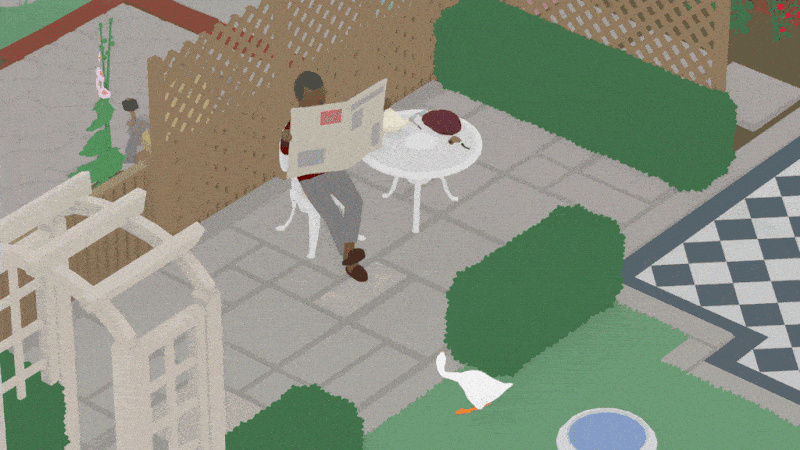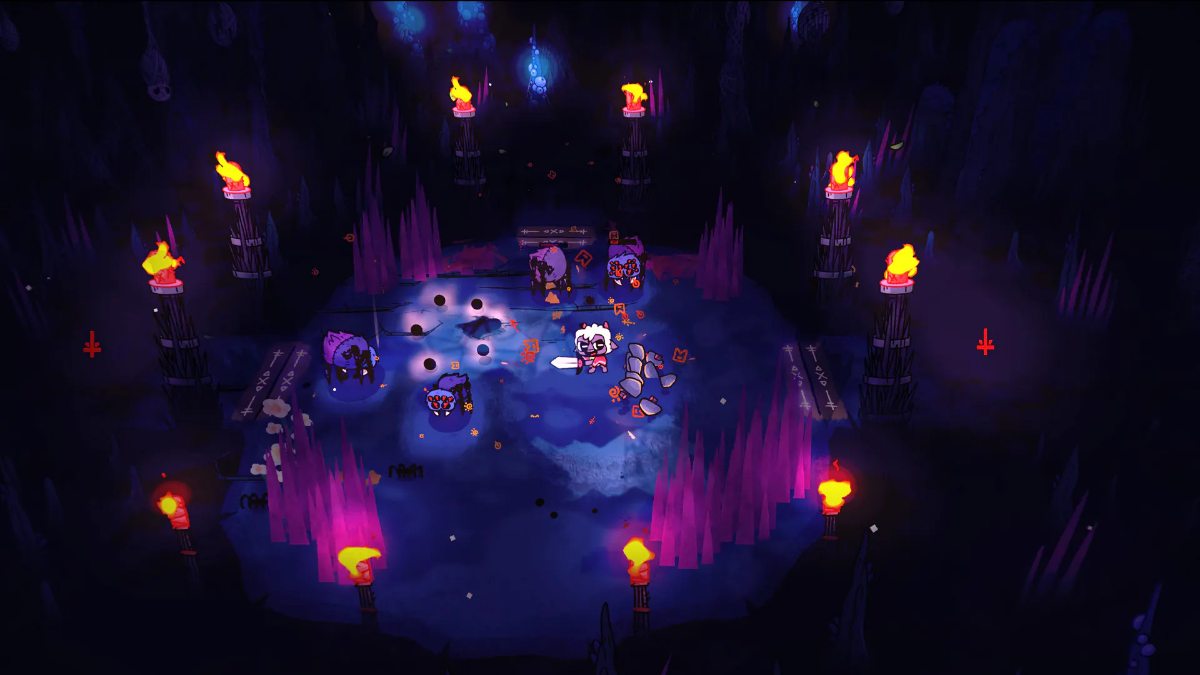

Video games are big business. The global gaming industry is expected to be worth $321bn by 2026. That’s more than the movie and music industries combined, so it’s easy to see why governments want a slice of the pie, and Australia is one of them.
91% of Australian households own a video game device, and Australian gaming stands strong with an audience of more than 17 million – over 66% of the population. In September 2019, the National Film and Sound Archive of Australia (NFSA) recognised the significance games have on contemporary Australian culture, announcing efforts to collect and preserve significant video games to help reflect the culture of the time. "In Australia, the games industry has a turnover as much as the film and recorded sound industries combined," NFSA games curator Thorsten Kaeding told ABC News.
But in order to access the huge numbers that the gaming sector pulls in, game development itself must be made more accessible and achievable. The process can be lengthy and costly, with no guarantee of success. Unless you’re a large established studio, or have the backing of a publisher, audience crowdfunding or financial schemes, it can be hard for most games to even make it to release.
That’s why it’s encouraging to see the steps the Australian Government is taking to support Australian game development from the ground up. Everyone from indies to larger developers within the country are able to seek financial support through two new funding programs: the Games: Expansion Pack – providing grants to smaller developers with budgets below AU$500,000 - and the Digital Games Tax Offset – which will offer tax breaks for those with budgets above AU$500,000.
Australian games developers have already played a vital role in creating some of the world’s biggest games. In this blog, we take a look at the country’s successes so far, highlight the support that’s being offered to developers and studios in Australia to expand on those successes, and what they’ll need to consider to take advantage of the additional support.
Australian game development has always punched above its weight. Despite a far smaller gaming market than the heavy hitters of China, the US and Japan, and with a population less than 8% of the size of the US, developers from Australia have created some of the most influential games of the moment.
Adelaide-based indie studio Team Cherry rocked Steam charts when it released ‘Hollow Knight’ back in 2017, becoming one of the most beloved indie games of all time and helping to draw attention to the Australian gaming scene. Its successor, ‘Hollow Knight: Silksong’, is consistently listed in gaming publications as one of the most anticipated games of 2023.
Melbourne studio House House’s ‘Untitled Goose Game’ single-handedly brought in swathes of new gamers across the globe eager to find some light relief during the pandemic, selling over a million copies in its first three months. And ‘Unpacking’, from Brisbane’s Witch Beam was a 2021 indie smash hit, selling 100,000 copies in just ten days. All three games have won recognition at BAFTA, the DICE Awards and more.

Screenshot from Untitled Goose Game developed by House House © image source
Several Australian states already have funding schemes or tax incentives to encourage game development in those regions, such as the Screen Queensland 15% Digital Games Incentive and the New South Wales Digital Games Rebate. But recognizing the economic potential that investment in the gaming sector could stimulate, the Australian Government has established two much broader financial initiatives to support Australian game development.
Screen Australia, the Australian Federal Government’s funding body for the screen production industry, launched the aptly named Games: Expansion Pack in March 2022. The initiative provides direct funding of up to AU$150,000 to original Australian games on any platform – including PC, console and mobile – with budgets below AU$500,000. Screen Australia is committing AU$6m throughout the program, which runs into 2024.
With high upfront costs and overheads, and plenty of hidden costs to trip up first time developers, it can be tricky for small indie studios to find the money to keep up with the ongoing cost of development, such as paying their staff and renting studio space. The Games: Expansion Pack is designed to combat this.
Screen Australia’s CEO Graeme Mason has said, “The [Australian] games sector is a fast-growing space and very important part of the Australian screen ecosystem… Through the Games: Expansion Pack we aim to enable independent Australian studios to advance the ambition and quality of their digital games, and transition into businesses of scale to better compete in the global market.”
The first round of funding launched in spring 2022 and resulted in more than AU$4m being allocated to 30 different Australian games. The fund has since reopened, with a rolling deadline until May 2023, and has been designed to complement the Digital Games Tax Offset.
The Digital Games Tax Offset was announced in May 2021 and introduced to the Australian Parliament as part of a treasury bill amendment in November 2022. The proposed Digital Games Tax Offset will be one of the best game developer incentives anywhere in the world. Australian game development projects above AU$500,000 will be able to claim a refundable tax offset of up to 30%.
The program will be a game changer for the Australian games industry, helping to support developers while simultaneously encouraging foreign investment in the sector. Since the scheme’s announcement, AU$609m has already been invested by venture capital leaders in Australian gaming, including Lego Ventures, Makers Fund, Team 17 and Tencent.
With an AU$20m cap per annum, this means Australian games studios will be able to submit up to AU$66.7m for a tax offset claim every year.
Rather than competing with regional tax incentives like Screen Queensland’s 15% Digital Games Incentive, the Digital Games Tax Offset can be combined with state-based incentives, taking much of the stress out of the cost of development.
Commenting on the Digital Games Tax Offset’s introduction to Parliament, Ron Curry, CEO of the Interactive Games & Entertainment Association (IGEA) – an industry association representing the video games industry in Australia and New Zealand – said: “By backing and introducing the [Digital Games Tax Offset] into Parliament, the Albanese Government has provided certainty and growth opportunities for our highly creative and technically skilled industry.
“The Australian game development sector has embraced this opportunity. The job creation, revenue growth and international investment in Australian game development will further cement and enhance Australia’s reputation for delivering quality content internationally.”

Screenshot from Cult of the Lamb game developed by Devolver Digital © image source
Australian games are already demonstrating the impact of the new support schemes. With the help of grants from VicScreen – the Victorian Government’s screen agency – Melbourne studio Massive Monster captured audience attention with their dark-yet-cute Animal Crossing-style roguelike ‘Cult of the Lamb’ in 2022; and fellow Melbournites Modern Storyteller turned their mod for Skyrim into stunning, BAFTA nominated title ‘The Forgotten City’ in 2021.
“US and UK publishers like Australian developers. They know that until recently we got very little funding but still made unique games,” comments Massive Monster’s founder Julian Wilton. “Our games are distinctive and overseas publishers like our look.
“There’s definitely prestige in partnering with an Australian studio at the moment. Looking at today’s hit games, you’d be surprised how many have had Aussie developers working on them.”
Of course, while money certainly helps, there’s more to making a game than cash and manpower. If you’re in Australian game development and are thinking of taking advantage of the Games: Expansion Pack or the Digital Games Tax Offset, here’s a few other factors to consider.
Chances are, you’re making a game that you hope will be successful internationally. So, it’s vital to research the local market and any specific aspects of the law there that may be relevant. Depending on the content of your game, there may be several legal hoops you’ll need to jump through before it’s accepted for sale. Several countries don’t allow violent games, or shy away from culturally sensitive topics.
Australia itself is a prime example of regulatory differences internationally. While the US doesn’t currently have any laws pertaining to loot boxes in games, the Australian Government is in the process of filing a bill requiring all games with loot boxes to be labelled 18+ and carry a warning to parents.
It’s important to research language barriers that may impact sales abroad. To engage as many gamers as possible, you may want to fully translate your game into a variety of different languages. But this is no small task. Many of the biggest titles on Steam, particularly indies, don’t get around to fully localizing their game for specific languages until months after release. Passionate community members often find workarounds with fan translations, but when releasing in a new market, you’ll likely want to invest in localization specialists.
If you’re making a synchronous multiplayer game, your IT infrastructure has to be extremely robust to provide players with the experience they’re looking for. Front-end game servers are where your players will actually interact with each other, and it’s where low latency is crucial. The location of your data centre will have a big impact on connection speeds, so must be a core consideration. If you’re marketing your game in Europe and the nearest data centre is the US, your players are going to have significant ping issues.
Whether you’re a developer with hosting expertise and want to set things up yourself, or you’re likely to have the help of a publisher, you’ll need to ensure your gaming servers are robust and capable of scaling with your player base. Project your lowest and highest concurrent user figures, and plan for peaks and troughs. Hyperscale cloud infrastructure might have the scalability you need but consider looking into the security and reliable performance that bare-metal servers can bring to prop up your baseline minimum concurrent player numbers.
You’re also going to need a space to test builds and share progress between team members during development. Investing in virtual build machines for remote development enables you to test your game to ensure everything is running smoothly. Most development engines, including Unity and Unreal Engine, are designed to run smoothly on virtual machines, so be sure to engage a hosting provider to ease development.
We’re already seeing schemes similar to the Digital Games Tax Offset pop up in other markets. The 32% Digital Games Tax Credit was recently announced in Ireland for games with development costs of up to $255.6M. It’ll certainly be interesting to see if games from these countries can leverage this funding to make it to the top of PC and console game charts.
In the meantime, feel free to get in touch with our gaming team if you’d like to discuss this further, or for support with your gaming infrastructure needs.
This article may contain copyrighted material which may not otherwise be owned by us. This article is made available for educational commentary purposes and we make no claim of ownership to any such material and we acknowledge the copyright owner's rights.

Hannah is an experienced communications professional, with a decade-long career developing memorable campaigns for some of the world's biggest technology companies. She has a keen eye for detail and flair for creativity.